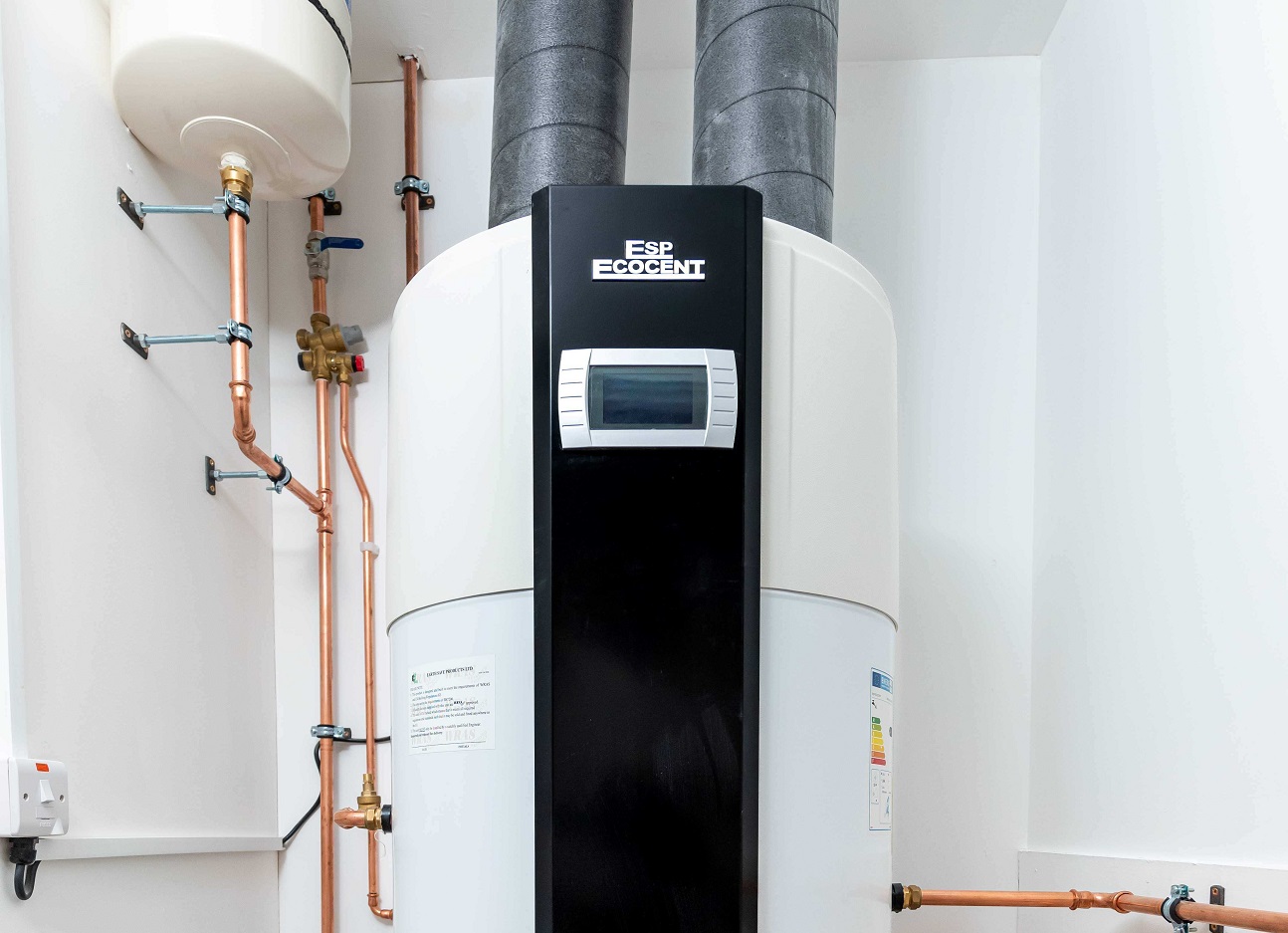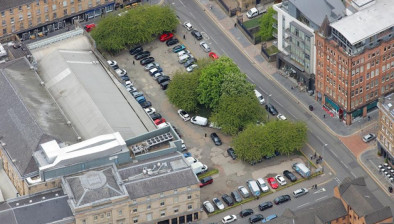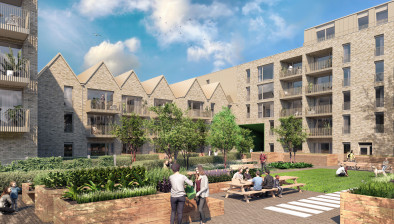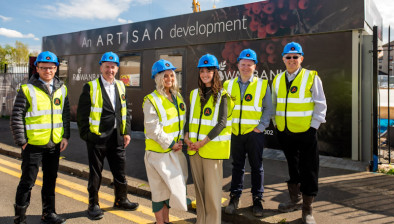126 individual air source heat pumps installed at Rowanbank Gardens

An Air Source Heat Pump at Rowanbank Gardens, Edinburgh
Developer Artisan Real Estate’s pioneering drive for zero carbon low-cost living has taken a major step forward with the installation of 126 individual air source heat pumps (ASHPs) at its Rowanbank Gardens development in Corstorphine, Edinburgh.
Described as a “spectacular blueprint for low carbon living”, Rowanbank Gardens is currently delivering 93 apartments for private sale and 33 for affordable living, all set around a large open garden space filled with fruit trees and communal planting beds. Construction began in summer 2021 with the first completions expected later this summer.
The development has been specifically designed to set new industry standards for sustainable, low-carbon living, challenging many of the norms associated with the construction and delivery of traditional apartment buildings.
Rowanbank Gardens is one of the first large developments in Scotland to employ individual ASHPs in all of its apartments, providing both heating and domestic hot water. As well as completely replacing traditional fossil-fuel-based heat sources, the latest state-of-the-art equipment uses smart technology to maximise energy efficiency whilst keeping costs down.
Air ducts positioned throughout the apartment capture warm air from rooms like kitchens, bathrooms and utility rooms - making use of any waste heat energy generated from activities such as steamy baths and showers, boiling pots and pans, washing machines and even a strenuous exercise work out.
This energy is passed back to each apartment’s ASHP where it is used to heat water for underfloor heating throughout the apartment, as well as providing domestic hot water. As a result of such smart technology, energy costs at Rowanbank Gardens have been predicted to cost up to 60% less than other new build apartments in the surrounding area.
Research shows that average annual hot water and space heating costs for a two-bedroom apartment at the energy efficient development could be as low as £775 per year, or less than £65 per month, providing significant long-term cost savings for first-time buyers or purchasers wanting to downsize for more cost-efficient living.
David Westwater, Artisan’s development director for Scotland, welcomed the introduction of air source heat pumps as yet more evidence of Rowanbank Gardens’ immaculate environmental credentials.
He said: “Artisan is leading the way in introducing energy-efficient technology, such as individual Air Source Heat Pumps to capture the warm air within the home and then use it to provide cheap and efficient heating as well as piping hot water. This surplus heat, which in traditional apartments would be wasted, can now be captured and recycled to provide significant financial benefit for potential homeowners feeling the pinch of expensive energy bills and the inflated cost of living.
“As well as innovations like individual heat pumps, we also provide A-rated appliances for all of our homes and are introducing cutting-edge environmental technologies such as low flow taps which have been proven to reduce water consumption by up to one-third.”
He added: “Rowanbank Gardens’ smart, energy-efficient design is geared to achieving low to zero carbon ratings, with the added benefits of significantly lower home-running costs. This demonstrates Artisan’s stated commitment to move away from using any fossil fuels to heat homes within our developments, as part of our pledge to reduce carbon nationally.”
The construction of Rowanbank Gardens follows Artisan’s design framework geared to achieving low to zero carbon city living, which starts with ‘use less, first’. The building is designed to make the absolute most of its natural environment, positioning it in such a way to maximise natural energy and warmth from the sun whilst providing management of - and protection from - external elements like wind and rain.
Artisan has also championed the use of ‘flowering’ sedum roofs at Rowanbank Gardens, which are natural insulators being cool in the summer and warm in the winter. They also provide a sustainable drainage facility with rainwater evaporating in sunlight, providing the simplest form of a short-term carbon cycle and reducing the impact on the existing drainage system.





















